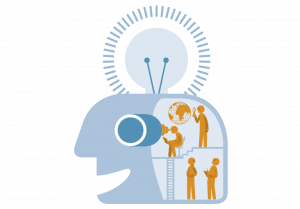
Clean Air

How did we create impact?
Air pollution from transport-related sources is a major cause of chronic respiratory-related illnesses and premature deaths in Africa. Kigali has taken measures to address these health issues by implementing car-free days and air quality monitoring. However, the Rwandan capital is witnessing rapid urbanization and motorization, which calls for more comprehensive and future-fit approaches to transport-related pollution.
Our solution “Clair” show cases innovative business models and technologies that help to reduce the traffic-related pollution. The center will collect examples of innovations around clean air like e-vehicles (EV) and shared bikes, it will process the information for example in short video or virtual reality showrooms and will disseminated the information about the solutions. It aims to increase and share knowledge with city planners, policy makers and investors.

What can tech do for clean air?
Technological solutions and digital tools can help tackle the challenge of air pollution by reducing the time spent in traffic, using alternative fuel technologies or implementing higher vehicle standards. A technology-driven transport system that is co-created and engages key stakeholders could help reduce pollution for the City of Kigali. Such a future-fit system could help coordinate stakeholders, improve the use of public transportation and sustainable modes of mobility, generate an intelligent transportation system (ITS) and disseminate information in a more inclusive manner.

Why do we need greater knowledge management of effective business cases for clean air promotion?
As Rwanda pursues its commitment for a climate resilient economy through the revised Nationally Determined Contributions (NDC), knowledge sharing of effective business cases is crucial to meet the estimated adaptation and mitigation funding needs. Clean air initiatives such as EVs tend to require substantial initial investment. Thus, stakeholders mainly the private sector will benefit from clear roadmap for the profitability of low carbon transportation. Government will also benefit from an evidence-based approach for fiscal and non-fiscal incentives.

Who attended









